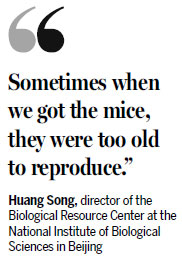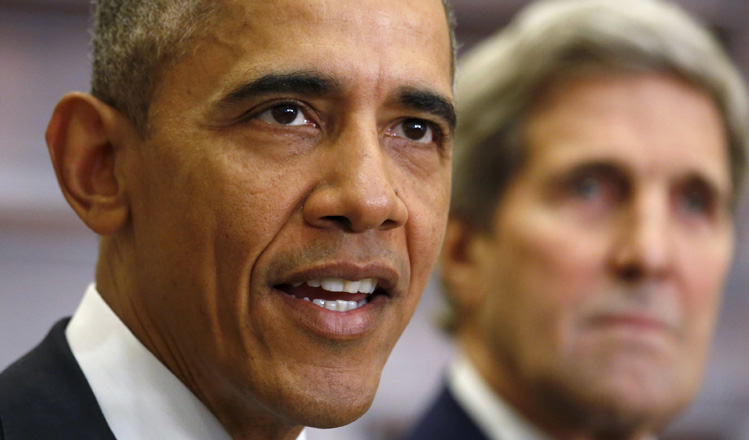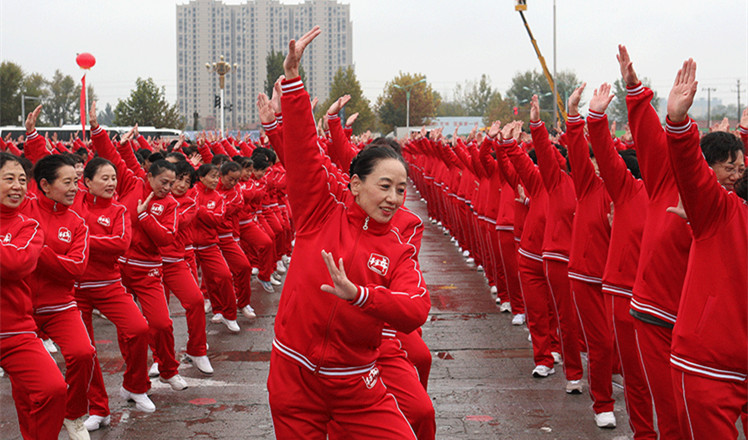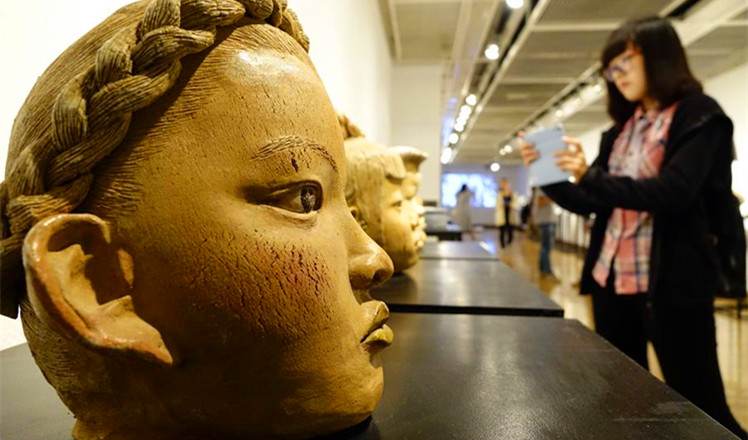Import of biomaterials to be simpler in 2016
Updated: 2015-11-10 08:01
By Wang Xiaodong(China Daily)
|
||||||||
Country to adopt more efficient inspection and quarantine rules after a successful 2-year trial
Companies and research institutes across China are expected to enjoy simplified inspection and quarantine procedures for importing biological materials sourced from animals or plants next year, China's top quality authority announced on Monday.
The measure, part of a series of reforms being tried in Beijing and Shanghai, is expected to help China's bioindustry to improve international cooperation with its overseas partners and increase its competitiveness, said Li Jianwei, chief of animal and plant quarantine and supervision in the General Administration of Quality Supervision, Inspection and Quarantine.
The reforms have been carried out in Beijing's Zhongguancun Life Science Park and Zhangjia Hi-tech Park in Shanghai, two major bioindustry bases in China, since the end of 2013, Li said.
The reforms include reducing the time needed for approval of imported biological materials sourced from animals or plants from 20 working days to up to seven working days, extending the length of import certificates and allowing companies and institutes to import some types of biological materials from internationally recognized institutes without needing approval.
The output of China's bioindustry reached 3.16 trillion yuan ($500 billion) last year, an increase of more than 20 percent compared with 2013, according to the Ministry of Science and Technology.

Despite rapid development of the industry, China still needs to import most of the biomaterials it needs, Li said.
However, the traditional supervision system that China has adopted has failed to meet the rapid development of the industry, Li added.
The reform has produced good results in Beijing and Shanghai, according to the administration.
Quality authorities in Beijing and Shanghai approved more than 3,200 applications for importing such biological materials between January and October, while the total number for last year for the two cities was about 2,400, Li said.
The reforms saved about 27,000 working days for enterprises in Beijing and Shanghai during the first nine months, he said.
Huang Song, director of the Biological Resource Center at the National Institute of Biological Sciences in Beijing, said the center used to have to wait for about six months to import pathogen-free mice for experiments from the United States.
"Sometimes when we got the mice, they were too old to reproduce," he said.
Now the researchers in the center can complete all the procedures in about a month, and they can start experimenting while the mice are in quarantine, which has greatly improved efficiency, Huang said.
Li said part of the reason that the reforms are tested in Beijing and Shanghai is that the two areas are important scientific research centers, which makes supervision easier.
"But development of bioindustries in some other areas is uneven," he said. "We will formulate relevant measures to ensure the safe and rapid development of the whole bioindustry when the reforms are applied all over China."
wangxiaodong@chinadaily.com.cn

 Obama launches Facebook page, sends message on climate
Obama launches Facebook page, sends message on climate
 Washington 'showing anxiety in stance adopted toward Beijing'
Washington 'showing anxiety in stance adopted toward Beijing'
 Tug of war
Tug of war
 Stepping into the record books
Stepping into the record books
 Contemporary Asian ceramic art shines in Hangzhou
Contemporary Asian ceramic art shines in Hangzhou
 Top 10 most innovative companies in the world
Top 10 most innovative companies in the world
 Spanish-made human tower wows Shanghai audience
Spanish-made human tower wows Shanghai audience
 The world in photos: Nov 2-8
The world in photos: Nov 2-8
Most Viewed
Editor's Picks

|

|

|

|

|

|
Today's Top News
China, not Canada, is top US trade partner
Tu first Chinese to win Nobel Prize in Medicine
Huntsman says Sino-US relationship needs common goals
Xi pledges $2 billion to help developing countries
Young people from US look forward to Xi's state visit: Survey
US to accept more refugees than planned
Li calls on State-owned firms to tap more global markets
Apple's iOS App Store suffers first major attack
US Weekly

|

|








